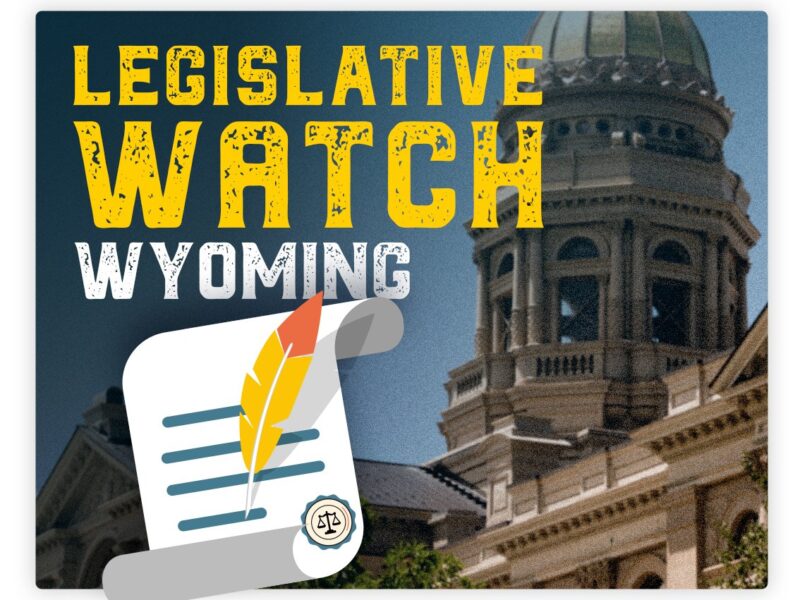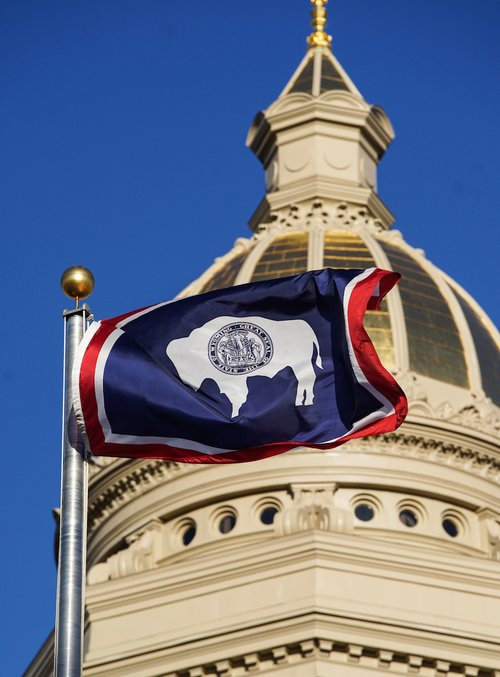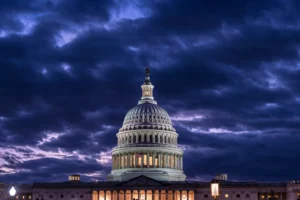LEGISLATIVE WATCH WYOMING: Future of Medicaid Expansion Unclear After Bill Dies in Wyoming Statehouse
Few paths remain to expanding low-income health coverage in Wyoming absent legislative action
- Published In: Politics
- Last Updated: Feb 22, 2023

By Jacob Gardenswartz
Special to the Wyoming Truth
Nineteen thousand Wyomingites who, according to state figures, could have gained access to free or low-cost health insurance coverage, will remain without such protections as Wyoming legislators again declined to bring a measure to expand Medicaid coverage to the House floor for a vote.

If passed, House Bill 80 would have enabled Gov. Mark Gordon and other state leaders to negotiate with the federal government about expanding Medicaid insurance coverage. The federal program provides discounted health insurance to older low-income Americans and those with disabilities, and a provision in the Affordable Care Act enables states to expand eligibility for coverage to all those earning under a certain income threshold — providing significant financial incentives to do so.
Wyoming is one of 11 states not to have expanded coverage to all its low-income residents. Advocates have been trying to change that for years, and many believed they’d be able to make it happen in 2023. But House Majority Floor Leader Rep. Chip Neiman (R-Hulett)’s decision not to bring the bill to the floor has effectively rendered the measure dead for this legislative season.
“We are very disappointed that one legislator can prohibit our elected representatives from considering Medicaid expansion after constituents have shown such strong support,” Ana Marchese, director of the pro-expansion advocacy group Healthy Wyoming, said in a statement. “The people of Wyoming deserve better. We will keep fighting to be heard.”
Neiman did not respond to multiple requests from the Wyoming Truth about his decision not to bring forward the policy and Marchese’s critiques.
Advocates’ hopes diminished by lack of action
Some advocates were initially optimistic about the prospects of enacting an expansion bill after the House Revenue Committee approved the proposed legislation last month. In that hearing, advocates and opponents clashed over the necessity for and funding mechanisms behind expansion.
Beyond the benefit of providing more citizens with health insurance coverage, proponents noted the state stood to save roughly $32 million after two years if expansion passed, due to new federal provisions that increase federal matching rates for traditional Medicaid enrollees. They also highlighted expected declines in rates of “uncompensated care” — emergency health services provided to uninsured individuals for which hospitals are never reimbursed. Montana Republican state Rep. Rep. Ed Buttrey, who was central to his state’s push to expand Medicaid, told lawmakers that rates of unpaid care were cut in half after Montana expanded Medicaid, saving hospitals upwards of $200 million.
Opponents, on the other hand, raised concerns about the possibility for individuals to game the system and gain access to reduced-cost services when they could, in fact, pay through traditional exchanges, though state health officials said mechanisms existed to prevent such fraud from taking place. Some far-right lawmakers also raised concerns about whether Medicaid dollars would cover abortions or gender-affirming medical care, going so far as to push amendments explicitly prohibiting funds from being used for those purposes.
The January hearing ended with a 6-3 vote to favorably report the bill out of the Revenue Committee and place it on the General File, where prospective policies await a hearing before the full legislative body.
“I’ve voted against this probably 10 times. As the appropriations chair, I cast the deciding vote in the committee that killed it — in a year it probably would have passed,” House Revenue Committee Chairman Rep. Steve Harshman (R-Casper) said, concluding last month’s hearing. “I’ve just learned so much and as I’ve learned more — it’s the right thing to do for the people.”
And yet, the Medicaid expansion bill sat awaiting further action for two-and-a-half weeks, until the Feb. 6 deadline for House measures to be heard by the Committee of the Whole came and went. Absent a change of heart by House leadership, the measure has no path to passage this legislative session.
Sen. Cale Case (R-Riverton), a leading proponent of the policy, made a last-ditch effort on behalf of Medicaid expansion earlier this month. During an impassioned speech on the state Senate floor, he pushed to attach the measure to the state’s supplemental budget.
“We’re the only state in the region now that hasn’t passed Medicaid expansion. We’re the only one, the only one. And we can do it costless[ly] for four years,” Case said.

Addressing a major critique that the policy would make the state more reliant on federal funds, Case acknowledged that wasn’t ideal but noted the state currently relies on such funding for many other programs: “How do we make choices about taking federal funds for this and that and that when we’re not taking it for 19,000 people that are working hard and trying to stay in Wyoming?”
Sen. Charles Scott (R-Casper), who opposed expansion, declined to engage on the point, instead insisting lawmakers should stick with their tradition of killing the policy.
“We have one of these [votes] every year for the past— more than 10 years,” Scott said. “We’ve voted them down for good reason”
Ultimately, senators voted 7-24 not to attach the policy to the supplemental budget, and as such the prospects of Medicaid expansion in this session quietly died.
What comes next?
Few paths exist to pursue Medicaid expansion outside of legislative action, so advocates are likely to again push lawmakers to pursue expansion in future sessions.
“Our coalition will not give up the fight to pass Medicaid expansion,” Marchese’s Healthy Wyoming statement read.
Alternatively, some states have pursued expansion via a ballot initiative, which enables citizens to vote directly on policies during statewide elections. Seven states have expanded Medicaid that way to date, including in South Dakota, where an expansion measure passed last year with 56% support.
But the prospects for pursuing such an initiative in Wyoming are thin. Though some polls have shown upwards of 65% of Wyoming residents backing expansion, ballot initiative rules make pursuing policies that way incredibly difficult; the last such citizen-led initiative was successfully passed in 1992, according to the National Conference of State Legislatures.
Citizen-initiated measures must garner at least 15% support from all those who voted in the preceding general election, as well as from 15% of the residents in two-thirds of Wyoming’s counties. These measures are also barred from forcing lawmakers to appropriate funds, meaning expansion would likely be unfeasible even with the required signatures.
Still, despite the unlikelihood of Medicaid expansion in Wyoming anytime soon, several other measures intended to bolster access to healthcare have higher odds of passage this session. Two bills pertaining to Medicaid coverage of pharmacy and podiatry services are actively being deliberated, and one bill, which would temporarily expand Medicaid coverage to new mothers, passed the House and is making its way through the Senate.
“It’s encouraging to see that when it really matters, Wyoming can come together to do what’s right,” Sheila Bush, executive director for the Wyoming Medical Society, said in a statement celebrating the postpartum measure’s passage in the House.













